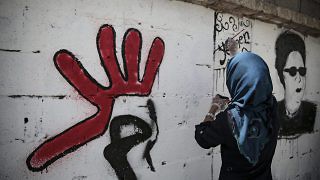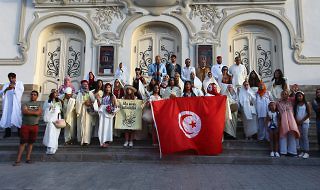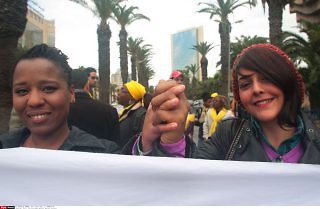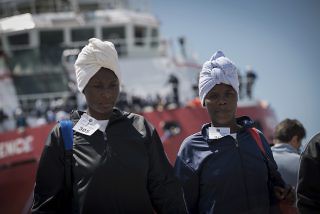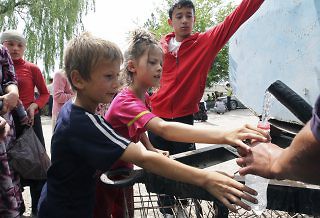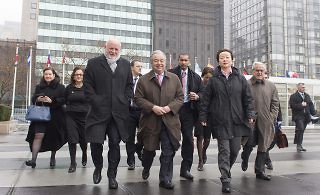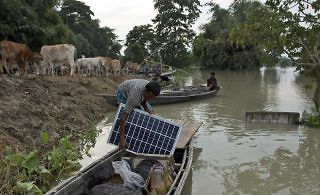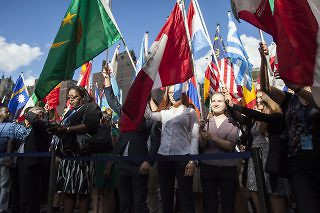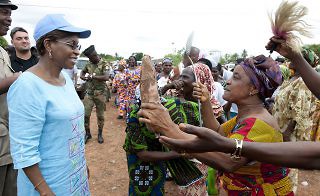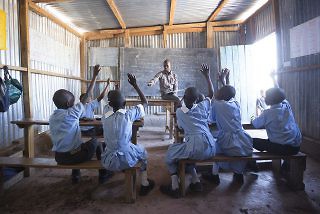A key question at this stage is how the gaps in the peacebuilding paradigm can best be addressed to foster greater ownership and effective implementation of the emerging concept of “sustaining peace.”
Author: Youssef Mahmoud
-
-
The question of equality of inheritance between men and women has been a thorny and sensitive issue for decades and the reactions to the president’s speech ranged from support to indignation.
-
While it is unanimously hailed as a revolutionary piece of legislation, some voices feel that the Tunisian government and parliament missed a unique opportunity to abrogate other antiquated laws and decrees that still treat women as second-class citizens.
-
It remains under-appreciated that the decision to escape, rather than participate in conflict or otherwise exploit weaknesses of governance, makes displacement a non-violent self-protection strategy.
-
Miroslav Jenča, UN assistant secretary-general for political affairs, discusses the need for a strong on-the-ground presence when engaging in preventive diplomacy.
-
Whether it is strategic analysis, conflict prevention, or simply prevention for sustaining peace in the pursuit of a surge in diplomacy for peace, none is achievable without adequate and predictable resources.
-
Sweden and other like-minded countries are well equipped to ensure that 2017 becomes a watershed year for putting prevention in the service of sustaining peace.
-
Too many states and peoples have responded to problems by unilaterally using force or by turning inward, building barriers instead of bridges, and stifling dissent, under the guise of fighting external threats.
-
During the General Assembly debate following the adoption of the resolution, most member states hailed the conceptual shift from peacebuilding to sustaining peace as transformative and forward-looking.
-
One of the main reason positive peace is judged as better strategy for moving the prevention agenda forward is its universal applicability and the fact that it is not confined to conflict-ridden countries. More importantly, it calls on the responsibility of all the world’s citizens to act as its proactive agents.

